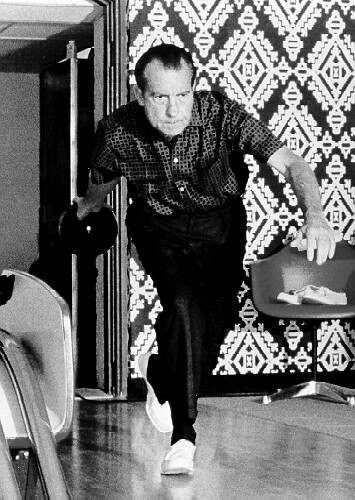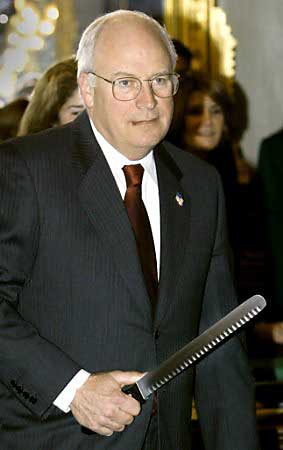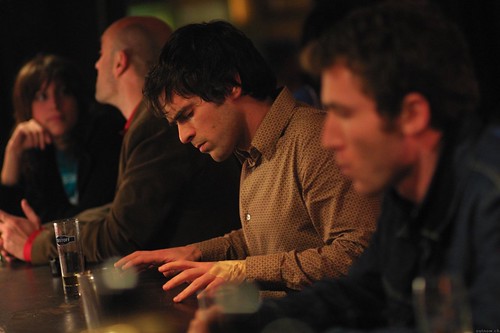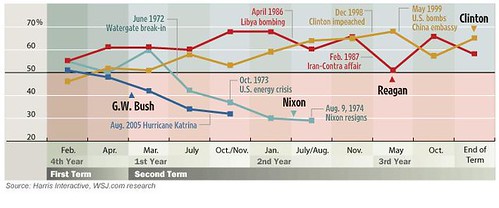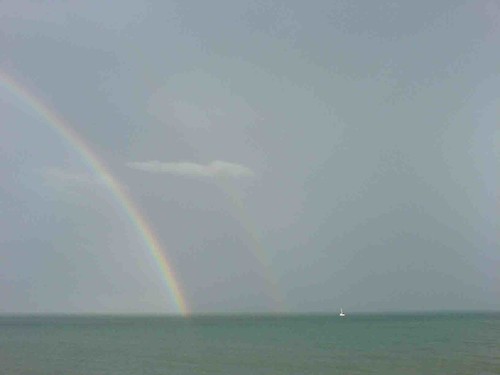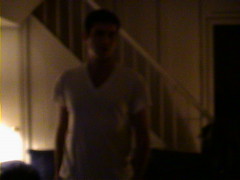Beyond Time
I wrote a few days ago about how an entire generation is passing away around us. I was referring to the 'great generation', those who witnessed and served in the Second World War. But on Monday one of the last surviviors of the generation before that - those who survived the trenches, the 'Lost Generation', passed away. His name was Alfred Anderson, he was the last living witness of the Christmas Truce. Here is the news:
Christmas Day truce veteran dies, aged 109In 1914 Alfred Anderson witnessed one of the first world war's most remarkable events
Gerard Seenan
Tuesday November 22, 2005Guardian
The last soldier to have served during the first world war's Christmas truce in 1914 died peacefully in his sleep yesterday aged 109.Alfred Anderson, who was also the oldest man in Scotland, died at a care home in Angus, bringing to an end a life which spanned three centuries and marking the end of a generation who were witness to one of the most remarkable events of the great war. Mr Anderson fought with the 5th Battalion the Black Watch and was the last surviving veteran to have served during the 1914 truce. There are now believed to be only eight survivors of the first world war left in Britain.
The former soldier was 18 when he was sent to the western front. Although he was stationed back from the frontlines when the truce broke out, he remembered the silence of temporary peace and shouting out "Merry Christmas" when he and his friends first heard it.
Announcing his death yesterday, the Rev Neil Gardner, minister at his church in Alyth, Perthshire, said: "He was Scotland's oldest man but he remained lucid almost until the end. He was a very gracious and unassuming man. He ... lived a truly remarkable life."
Shortly after dawn on Christmas Day 1914, the sound of Silent Night, or Stille Nacht, was heard from behind German lines. As the carol ended, a German soldier appeared in no-man's land. "Merry Christmas. We not shoot. You not shoot," he is reported to have said. It was the beginning of an unauthorised truce that would gradually spread across the 500-mile front, where more than a million men were stationed. Soldiers from both sides shook hands, sang carols and played football. In some parts the ceasefire lasted for weeks, but Mr Anderson heard gunfire by afternoon.
Lieutenant Colonel Roddy Riddell, regimental secretary of the Black Watch, said the death of Mr Anderson, whose funeral is expected to take place on Friday, was the "end of an epoch". In 1998, Mr Anderson was awarded France's highest honour, the Légion d'Honneur, for his services during the first world war. In interviews, he said he never forgot the trenches. "I saw so much horror," he told the Observer last year. "I lost so many friends."
Jack McConnell, Scotland's first minister, said the sacrifices that Mr Anderson and his generation of young Scottish men made and the horrors they endured must never be forgotten.
I find this information very moving and I think I understand why... but not entirely.
I've always been moved by the idea of people who live beyond time. Over the last five years many moments in art that I've found most profound, at a quite simple and deep level, were to do with this.
That sequence in Spielberg's AI where the android child and his robot teddy bear emerge thousands of years into the future, in a time where humans have ceased to exist and yet... The one memory that gives the child peace is a mundane & simple one: his human mother putting him to bed in a suburban home that was lost to dust thousands of years before.
The climax of 6 Feet Under, which travels deep into the future to see each character's death, including one who lives 102 years to 2085. Many are visited spiritually at the moment they expire by a loved one from the past - in other words, from our own present that seems so visceral and important now and soon will just be memory.
Finally, the chapter in David Mitchell's Cloud Atlas called Sloosha's Crossing An' Everythin' After. Written in the manner of a primitive Huck Finn, it charts the life of a tribesman called Zach'ry, who lives far in a post-post-Apocalyptic future (we've gone so far, we've already had and survived apocalyptic wars which ensue from this time). Zach'ry represents a line of humans who've surpassed the age of exploration, the World Wars, this time, an advanced post-religious era many centuries after ours and then... Unknown to him, Zachary witnesses the last death of civilization's light. What he sees, is the end of human endeavour and there's nothing to follow it.
Everything dies and crumbles to dust. But it's not just the thought of weeds growing in the carcasses of skyscrapers - itself a deep, powerful image - it's the idea of people living so long, witnessing so much they themselves become remote islands in a sea of memory. The last remaining witnesses to civilizations past and forgotten. And there is something in the loneliness and historical depth of that that moves me intensely.
Alfred Anderson's first memory was of soldiers from the Boer war holding him on their shoulders as they returned home. He fought in the trenches of a war that seems to have lost all meaning now, just the cruel and violent carnage of mud and iron. He saw the descent to the Second World War, death camps and atom bombs, the rise and fall of communism, moon landings, environmental ruin and he ended up now, marooned in our age so far from where he started and so far from that epochal moment of his and so many of his comrades' lives: when a German soldier walked uncertainly across No Mans land waving a white cloth one freezing day in 1914.
And now, Alfred's gone and we're alone. All we have left are the recorded memories, the documents and... We too will be slowly marooned as time moves on.
So RIP Alfred, and the others from your time: rest in peace. Wherever you are, we'll be joining you soon. And then, others will mourn what we have seen and known.

